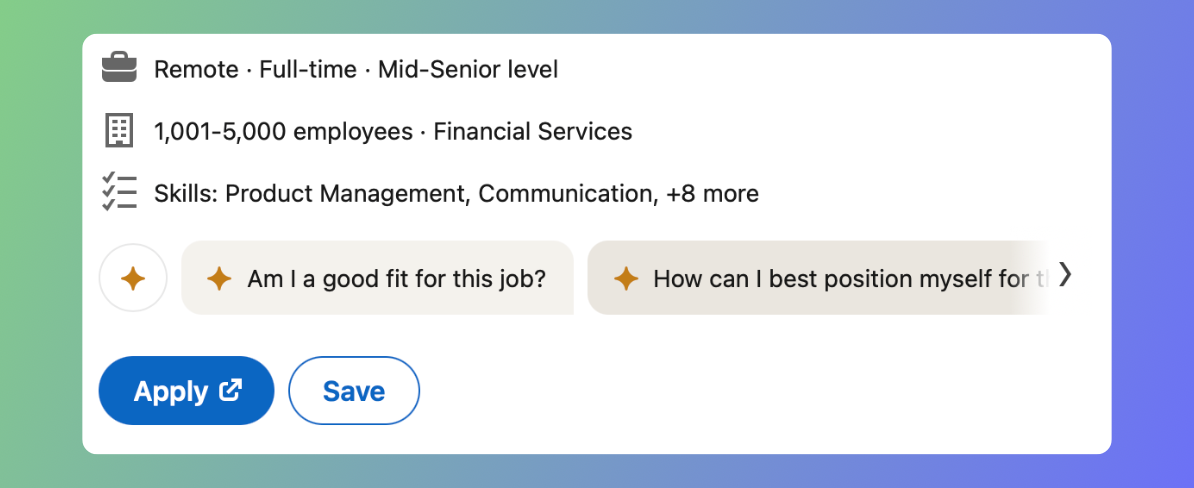Robots Hiring Robots: How AI is re-shaping recruitment
In this day and age, and with the rise of generative AI, real human communication is becoming increasingly important but getting to it is becoming harder than ever.
If you've ever applied for a job you know that your chances of getting an interview increase significantly if you're resume is tailored to closely align with the job requirements.
Your resume is first processed by a robot
This is because your resume goes through a system known as "ATS" which stands for Applicant Tracking System. Now, ATS software comes pre-packed with features that allow the hiring party to manage the recruiting and hiring process.
And as you know, recruiters make decisions based on recommendations provided by such systems. Long story short, ATS software can extract information from your resume, like your education, work, skills, and more, and then this information is cross-checked with the job description and requirements so that you can be assigned a rank. The higher you rank, the higher your chances of landing that first interview.
So it's important to know that the first screening process is mostly automated and performed by AI and other algorithms. This saves the recruiter plenty of valuable time since they won't need to manually review resumes and other candidate information. Plus, AI makes more sense in the initial screening phase since it is less prone to errors.
Candidates are also using AI to their advantage
So as you can see, a candidate with a generic resume that is not aligned with a given job description will have trouble securing that first interview. Luckily, with the recent explosion of AI apps, there are plenty of services and tools that candidates could use to tailor and update their CVs based on a given job description.
Large companies like LinkedIn have already embedded AI capabilities directly onto job posts so that candidates can quickly determine whether they are a good fit for a position, learn about a company, or get insights on what they could improve so that they are a better match for the job.
Take a look at how AI is now embedding directly under job posts on LinkedIn:

LinkedIn's AI also suggests "Next steps" and prompts the user to perform suggested actions to align their profile with the job; Pretty cool.
Candidates are also flocking to ChatGPT and using other LLMs as personal "advisors" to generate recommendations or new resumes altogether.
Is it safe to assume that robots are hiring robots?
This makes me wonder, are robots hiring robots now? With each passing day, more and more candidates will rely on AI to refactor and optimize their resumes before applying for jobs. Gotta fight AI with AI, right? 🥊
While this is good, a few issues could pop up. For one, a large number of candidates may look like perfect fits for a job, while in reality, they are not. This would lead to plenty of job seekers competing for a job, many of whom are unqualified but will probably pass through ATS and potentially snatch an interview from a more qualified candidate.
Another real problem with AI on both sides of the equation is the dehumanization of the process. On the one hand, recruiters over-relying on AI will undoubtedly miss out on important candidates' unique experiences and perspectives which may be crucial for the job, while on the other hand, candidates will compete with many applications that look and sound similar making it extremely hard to stand out from the crowd and earn that first interview.
What does the future of recruitment look like?
At the end of the day, human communication will become more important than ever. But getting to it will be harder than ever.
However you look at it, recruitment is set for a major disruption and the process will not remain similar to what we have today.
Recruiters will have more important roles to play
Hiring managers and recruiters will have more important roles to play. Not only they will need great communication skills but they must also possess technical skills relevant to the role to some degree. They must be able to efficiently weed out over-optimized candidates.
Candidates must improve their communication skills
For the ordinary person out there still making manual changes to their resume, you should realize that you're competing against robots for a job. These robots can optimize and apply to thousands of jobs in minutes. Will you use AI to your advantage? Or will you attempt to beat it yourself?
Let me know in the comments!

